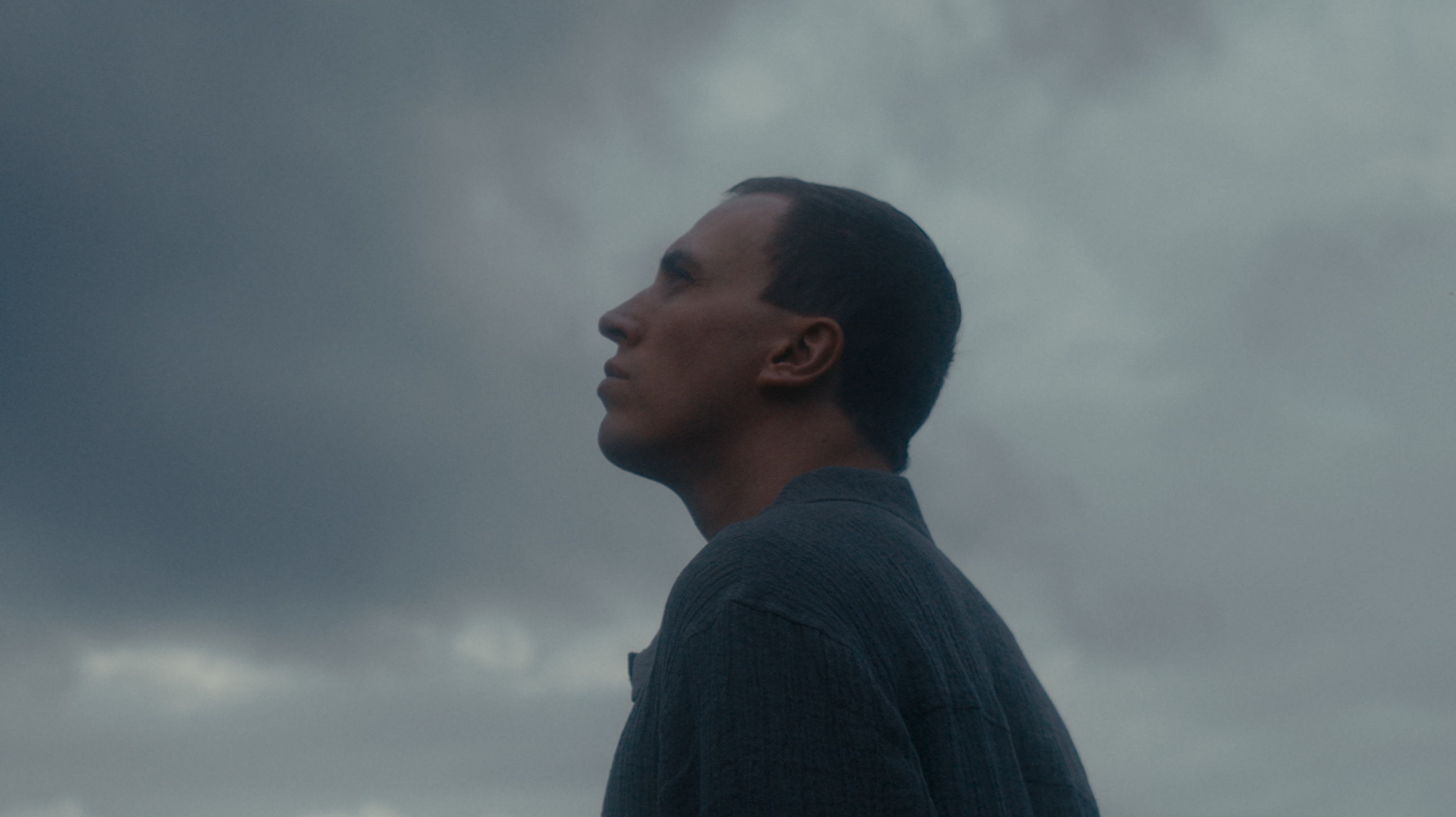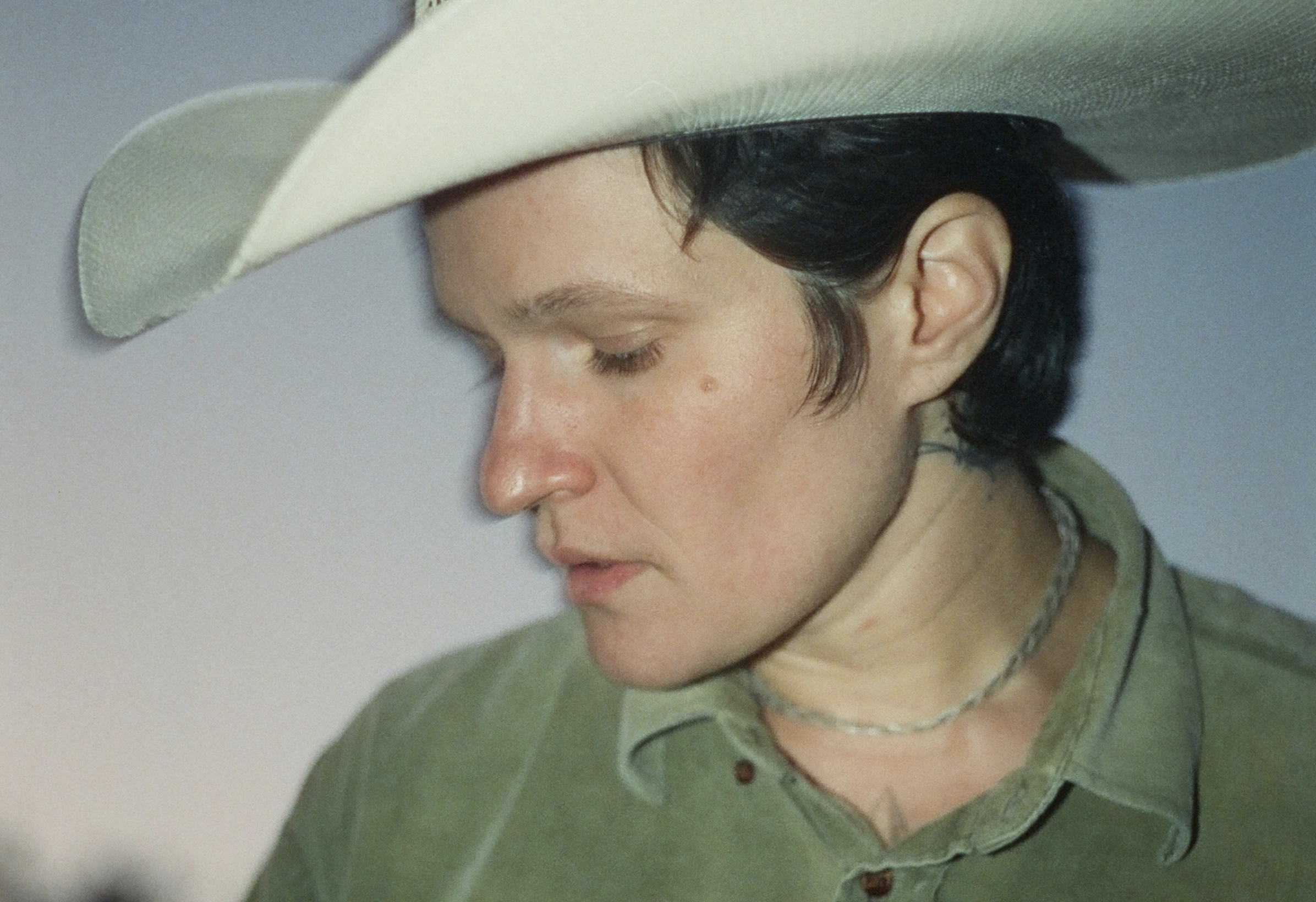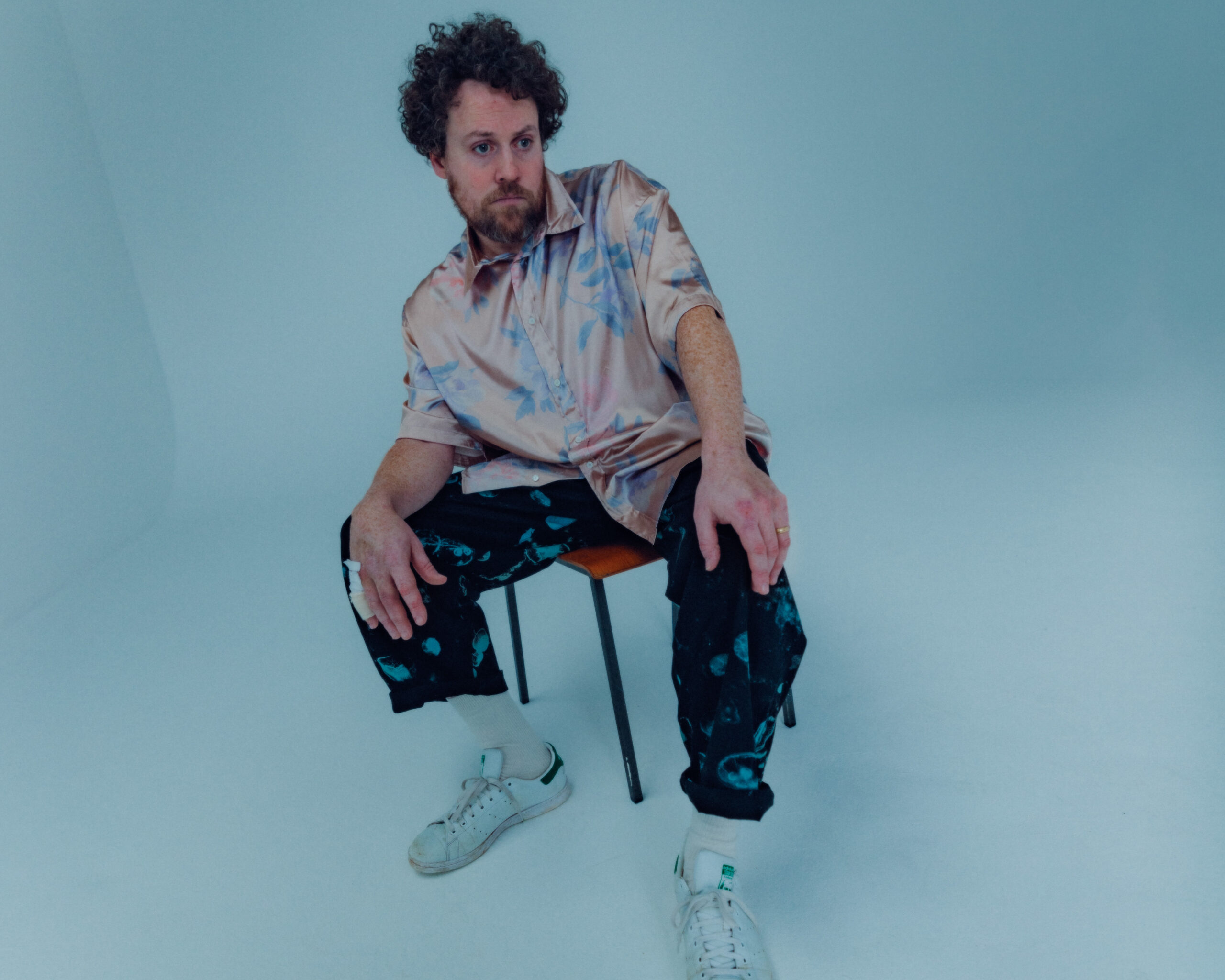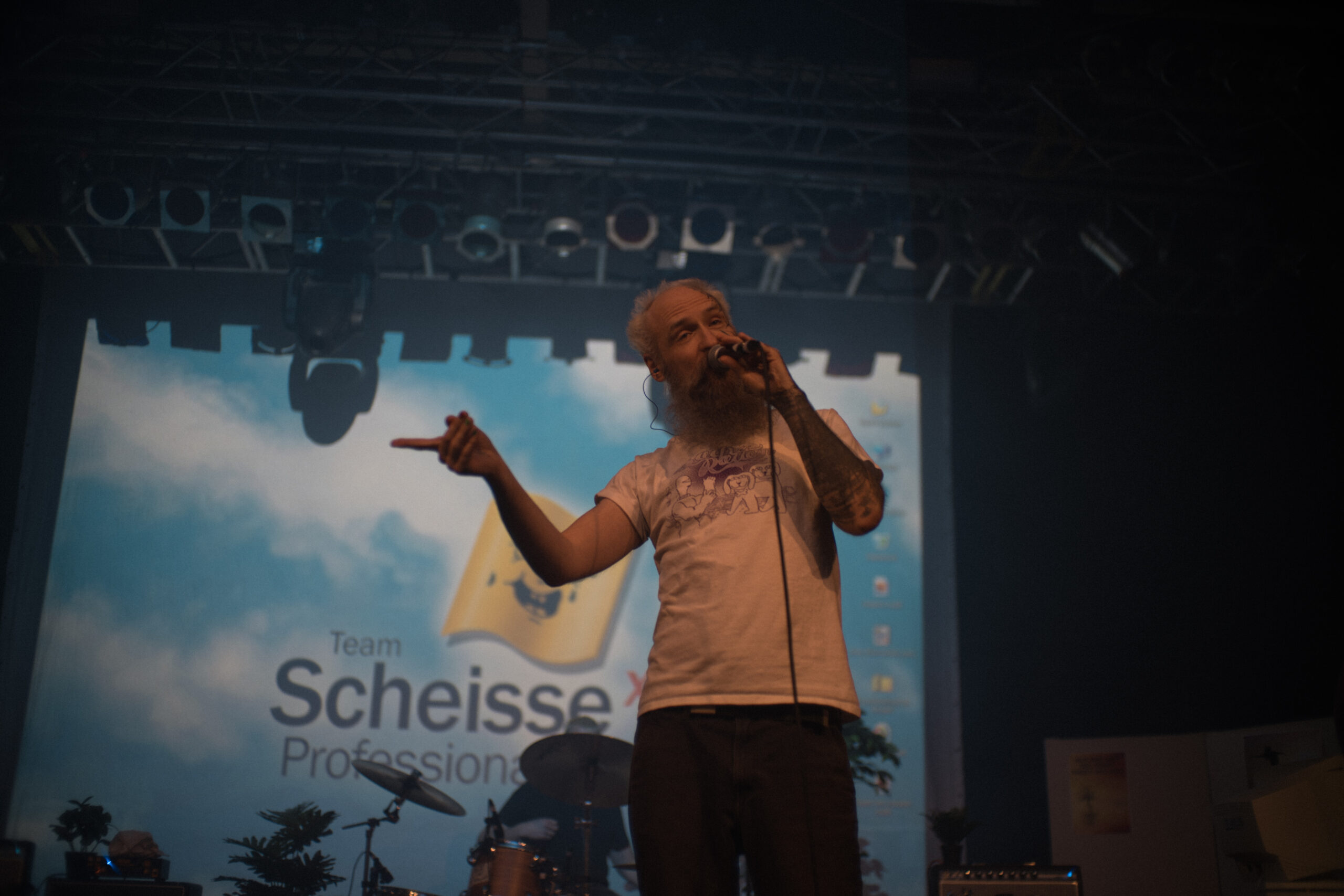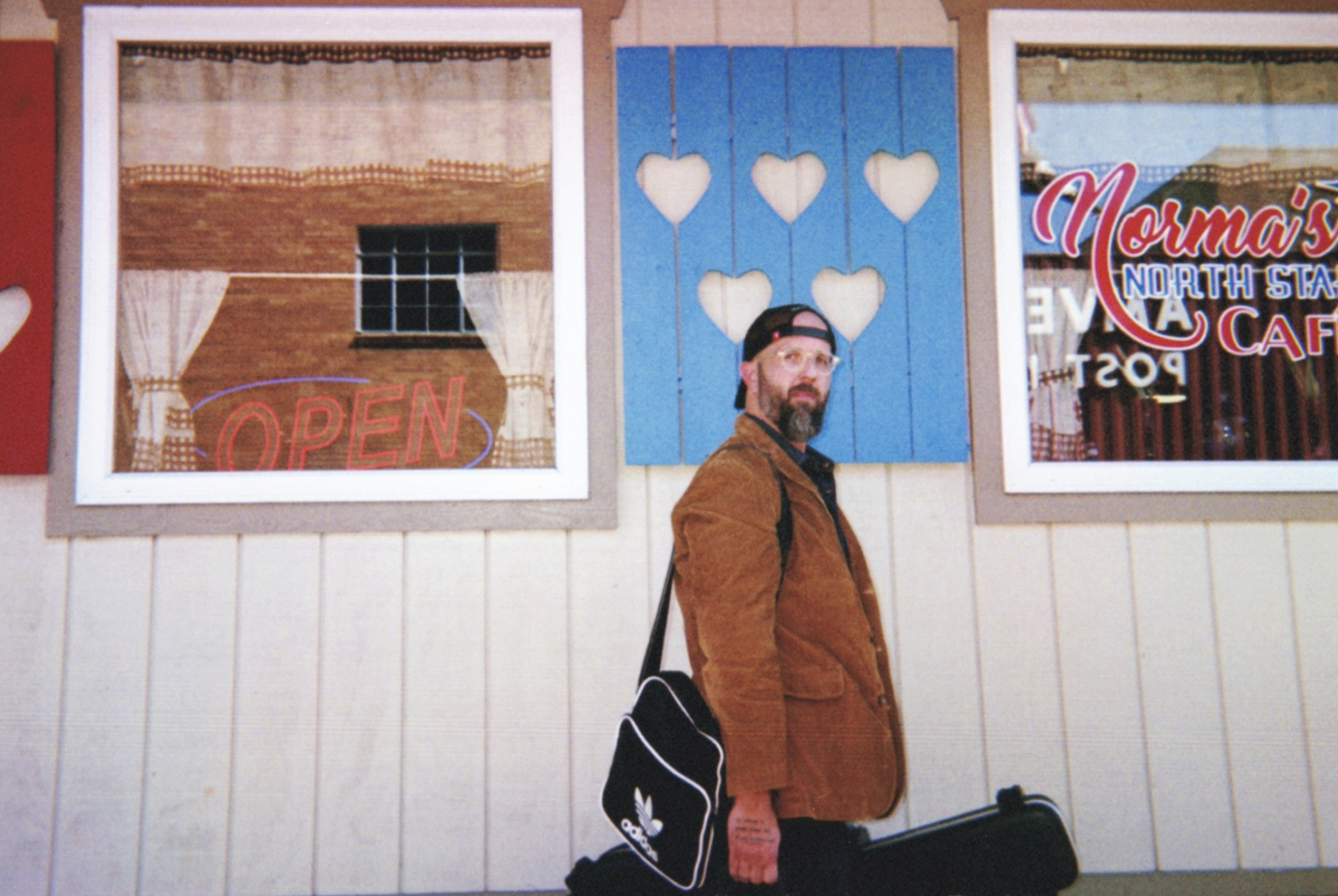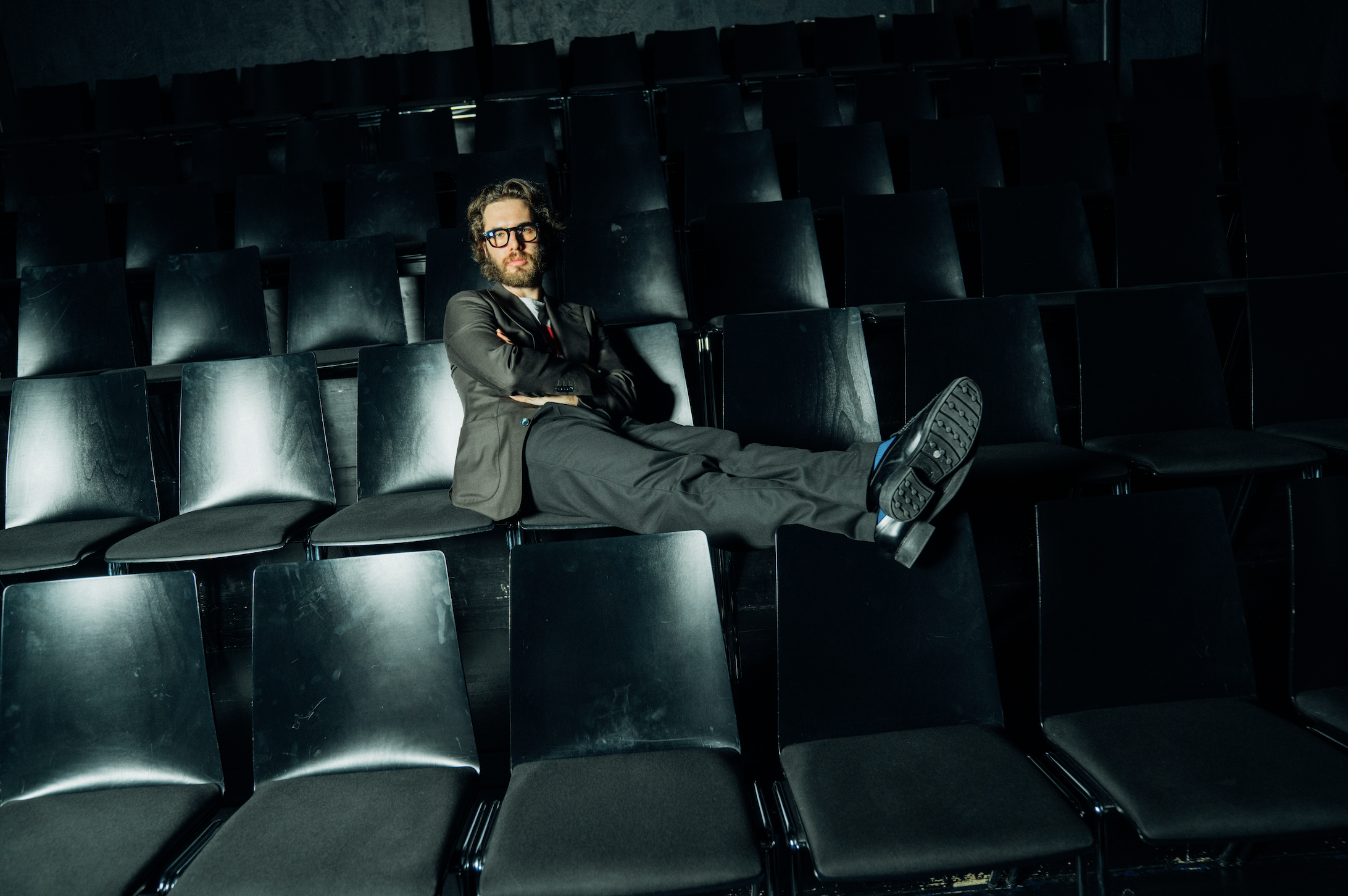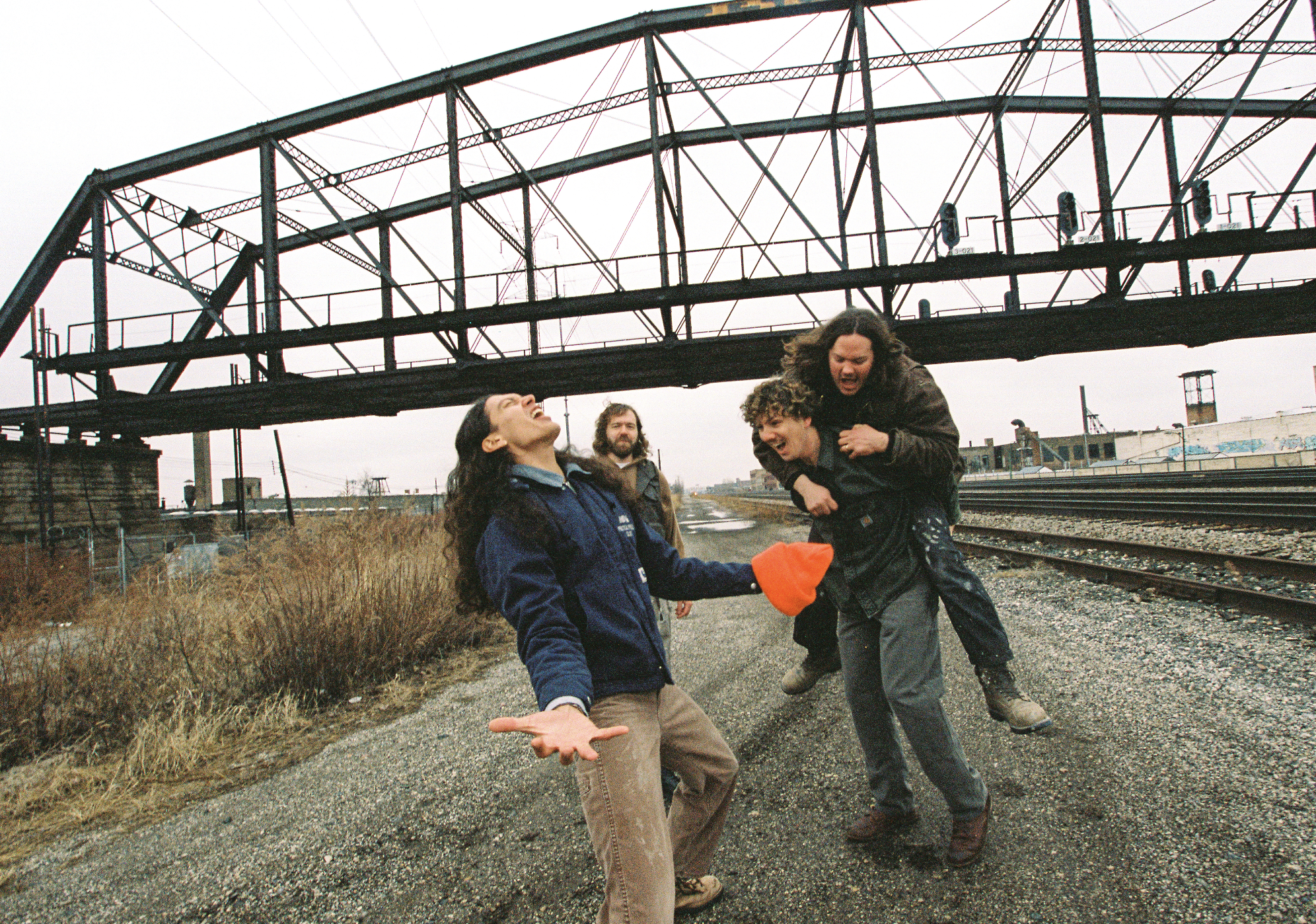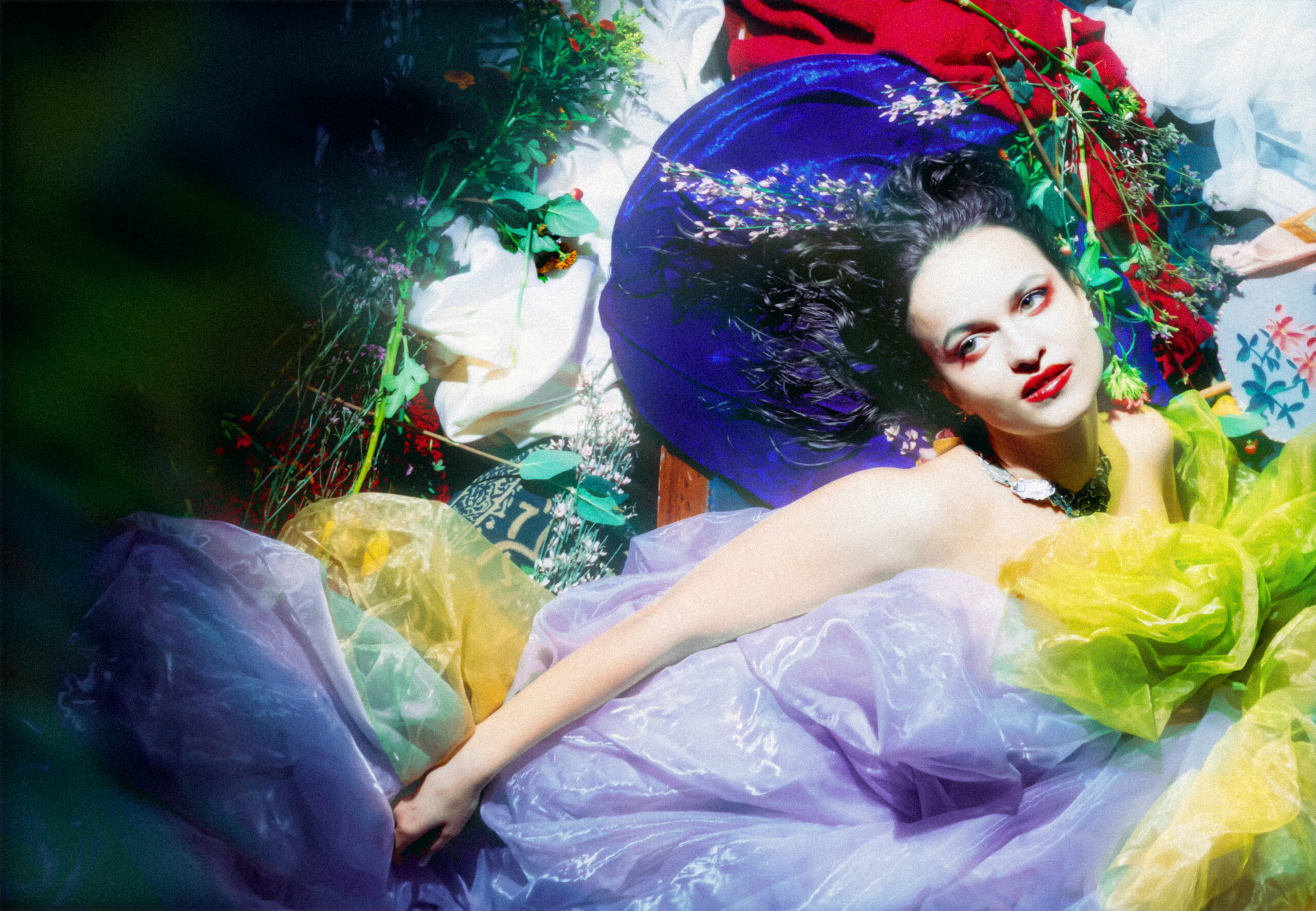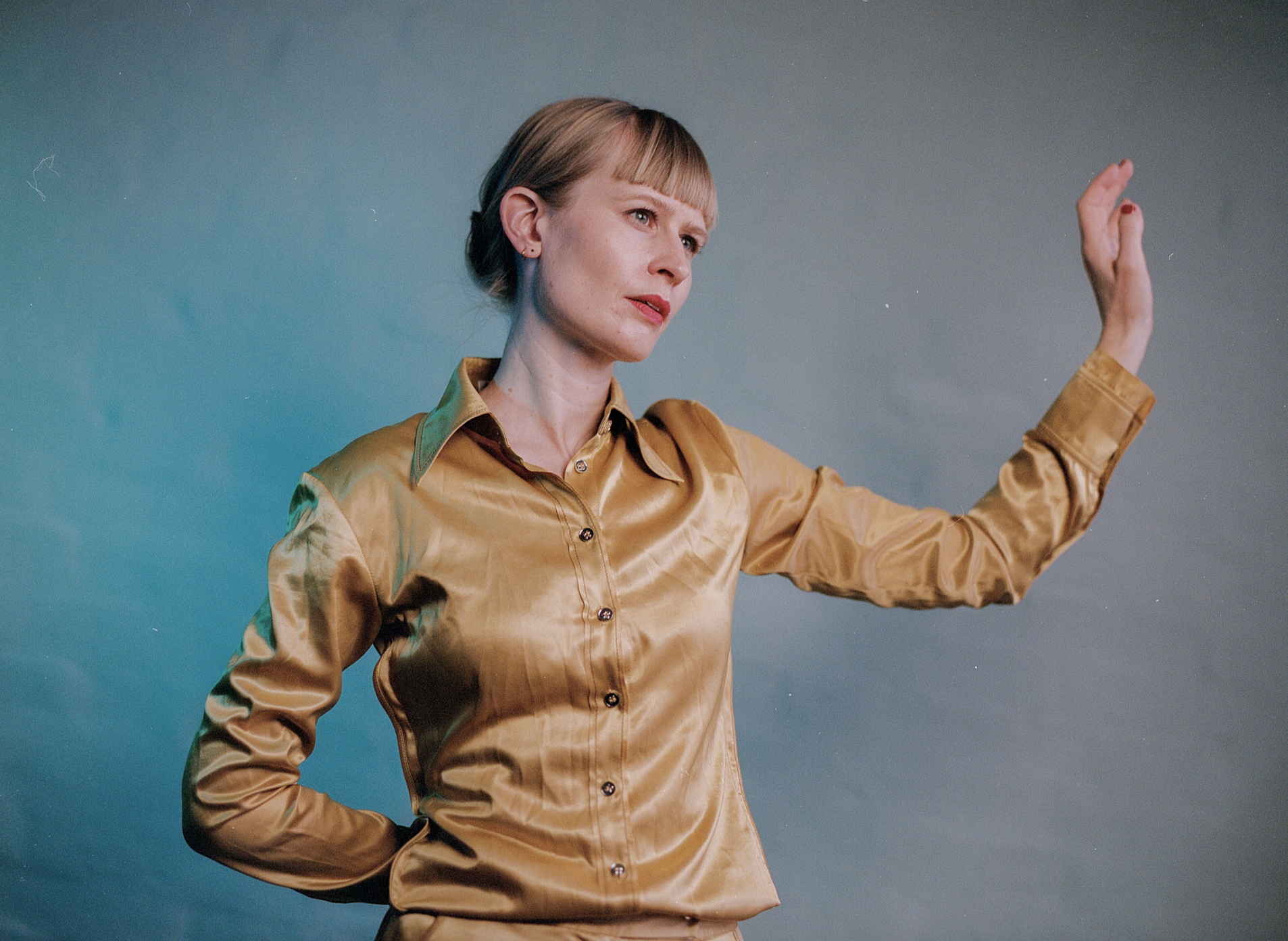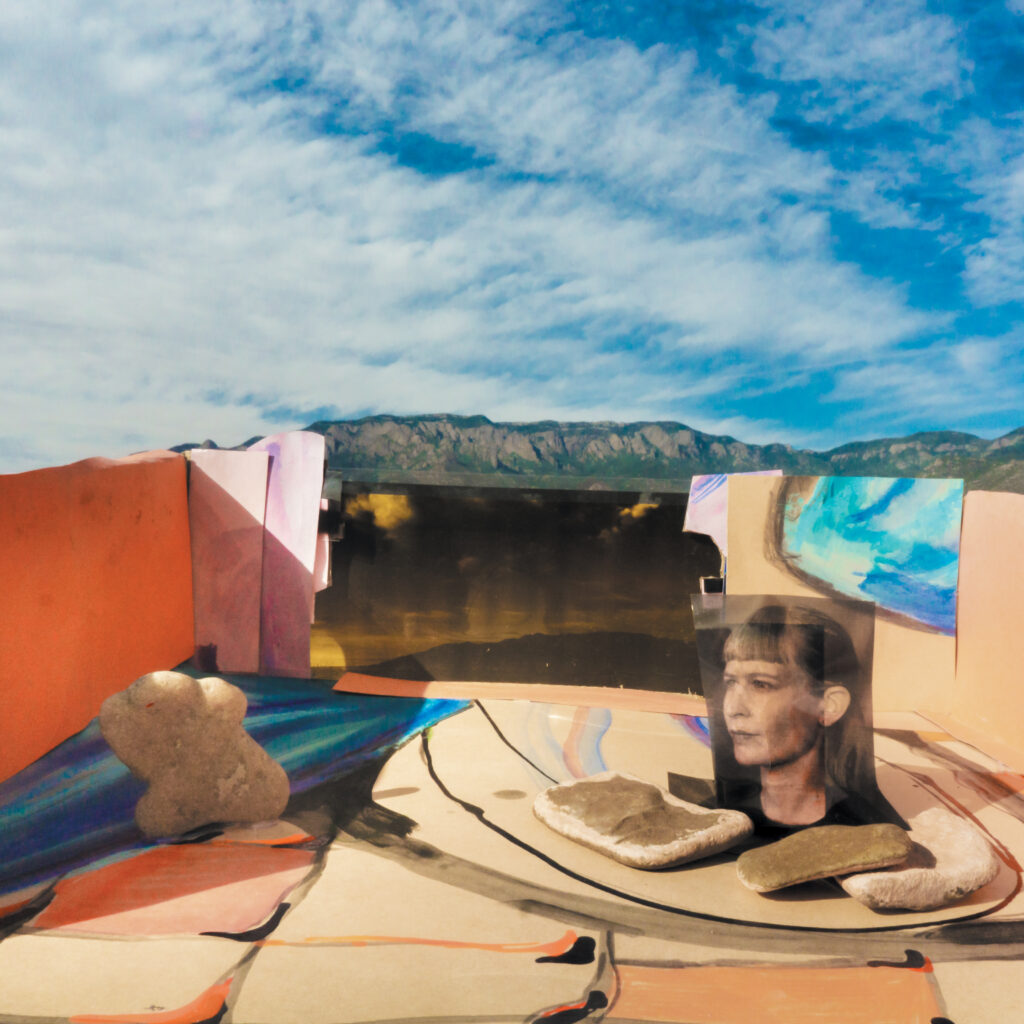 Foto-© Jenny Berger Myhre
Foto-© Jenny Berger Myhre
Jenny Hval ist eine in Oslo lebende Musikerin, Komponistin und Schriftstellerin. Multidisziplinär und transgressiv sind Worte, die oft verwendet werden, um ihre Kunst zu beschreiben, aber Jenny Hvals vielstimmige Kunst ist in der Tat nahtlos zwischen musikalischen, literarischen, visuellen und performativen Ausdrucksformen verwoben. Ihr neues, gerade erschienenes Album Classic Objects beschreibt eine Landkarte der Orte: vergangene Orte, wie die leeren Pubs in Melbourne, in denen Hvals Band früher spielte, oder öffentliche Orte, die sie während der ganzen Zeit des Lockdowns vermisst hat – aber auch imaginäre und zukünftige Orte aus Träumen oder fiebrigen Halluzinationen. Und es ist eine ganz persönliche Version eines Pop-Albums, denn jeder Song hat eine Strophe und einen Refrain, was den Liedern eine gefestigte Struktur gibt und Heba Kadry hatte im Mix die Aufgabe Classic Objects so zu mischen, dass es klingt wie auf einer Stereoanlage in einem geheimnisvollen Raum. Wir sprachen mit der norwegischen Sängerin, die übrigens auch fast zeitlich mit ihrem neuen Album ihr neues Buch Perlenbrauerei am 22. Februar veröffentlichte. Unser Interview!
Hi Jenny, how are you?
I’m good I’ve just been working on creating an NTS radio thing.
That sounds really fun!
I actually find it really difficult because I’m curating a playlist, which I find to be so difficult. I know that a lot of people love doing it and for them it’s natural to go from being the artist to being a DJ or presenter. I’m not like that though, I’m the person hiding at the party in the corner not wanting to put on anything. I do enjoy it once I get going but it can take me weeks with one playlist. I’m stupid [laughs], I don’t gather music and names in my head in the way that a lot of my friends do. I’m not a curator.
That is interesting because you seem to be very explicit about influence. You have referred to Classic Objects as a map of places – places from your past and sometimes an imagined future. In a way this parallels the way that subjective experience is formed, the present is in many ways constructed around a remembered past and an imagined future. What I wanted to ask you is about subjectivity and the fiction of interior life – you have cited Anne Carson and Chris Kraus as influences, both of whom traverse the borders between memoir and fiction. How important is it to you that the artificial elements of your art are squashed together with the “authentic” or the autobiographical?
That’s a really good question – I think about this a lot, and I have to remind my self that no autobiography as it would be recalled in a courtroom is what life is. I have seen enough documentaries and fictionalisations to know that you don’t understand a person by piling up actual events. This is a bit like paraphrasing Chris Kraus badly but to think that there is one intellectual part of you happening over there, and then there is one part that is feeling over here, and there is one part that is autobiography that is very tangible over here, and there is something that is very unreal and fake over there is wrong. Having these oppositional views on all parts of us is very strange and I think that what I was trying with Classic Objects is to start with elements that would seem like a simple story. I love using details from my own life because that is what I map out and remember, but sometimes when I start writing there is a voice that combines it with the thought that tries to reflect upon what is happening, and this other part that is suggesting what could be happening or what relates me to other people like communal experiences. I think that music for me can pull these things together. For example, in writing a simple song like American Coffee, I would instantly betray it because I freeform into other images which maybe the music made it easier for me to reach. If you are working with melody then that melody has its own story so sometimes even if the words you have written previously are true, something else is going to fall out when they encounter a melody that goes in a different direction. In the process of this album, I thought it was very important to work a lot on the writing, and to see what would happen if I started out with events that had the appearance of a memoir. Also, I was in the perfect position to write things like memoir because I was stationary. Like how many books have we read about the old narrator who is outside of the story itself. What was fun about Classic Objects was that the stationary storytelling instantly became bored of itself, and said “what about these images? Aren’t they real?”
That’s interesting what you are saying about being stationary because you have written: “I wanted to explore “just me”, stripping the concept and idea of myself down to the very core. Somehow showing the listener that at the core of our search for “just me” there is emptiness.” My reading of this is that language is an inherently social technology, and that without a recipient with whom to exchange it ceases to function.
Oh, that’s much better. What you are saying is much more on it. The nature of engaging in language is a public one or a social movement.

Right. I want to ask you about your relationship to places and exteriority in general because it seems that art for you requires performance and communicating something to a listener-reader-viewer. Is something about it lost when it is private?
Yes! I haven’t performed Classic Objects yet, so that’s still in the future for me, to have the songs challenged by the audience. I’m very much looking forward to it. In the past I would always perform things and change them afterwards. For my album Innocence is Kinky, I performed those songs in two or three different arrangements and genres. With that album I felt like I had my rock phase and that faded into a different sphere. I’ve been able to experiment with the recipient and I haven’t done that for a while because I’ve really enjoyed just putting things to the test and challenging what I’ve done. So, I have experienced songs on my more recent albums being changed a lot throughout their lives of live creatures.
Do you think you are always writing songs even when they have been released?
Well, that sounds very creative. Sometimes, but I am also quite comfortable with performing them similar to how it sounds on a recording for a while, but then eventually the rewriting will be heard. I will be rewriting and editing stuff long before you can actually hear it and go to a show and say, “that was different”. Depending on when you saw me things have been similar or different from an album world. The last few years for me have been a little bit limited by the fact that I have really wanted to have choreographers, dancers, and performers on stage instead of musicians. So, I have had to have a lot of the instruments on track. There are things we can do like slow them down or loop them or manipulate them, but we haven’t been able to have live instruments. But now I am going to perform with a full band. For now, some of it sounds pretty similar to the album versions because we can, but then other things appear and I’m sure that we are going to start playing with things in a way that is very different than using an electronic setup. But I also really respect a recorded version as something that is very thought through and already at a very creative stage. I don’t go to concerts thinking that if I’m not surprised by amazing improvisation, it’s not good. I don’t think that is necessarily more creative than performing things more similarly to a recording. But it has taken me a long time to get there because I used to think that if you were not completely free from a recording on stage that you weren’t really live.
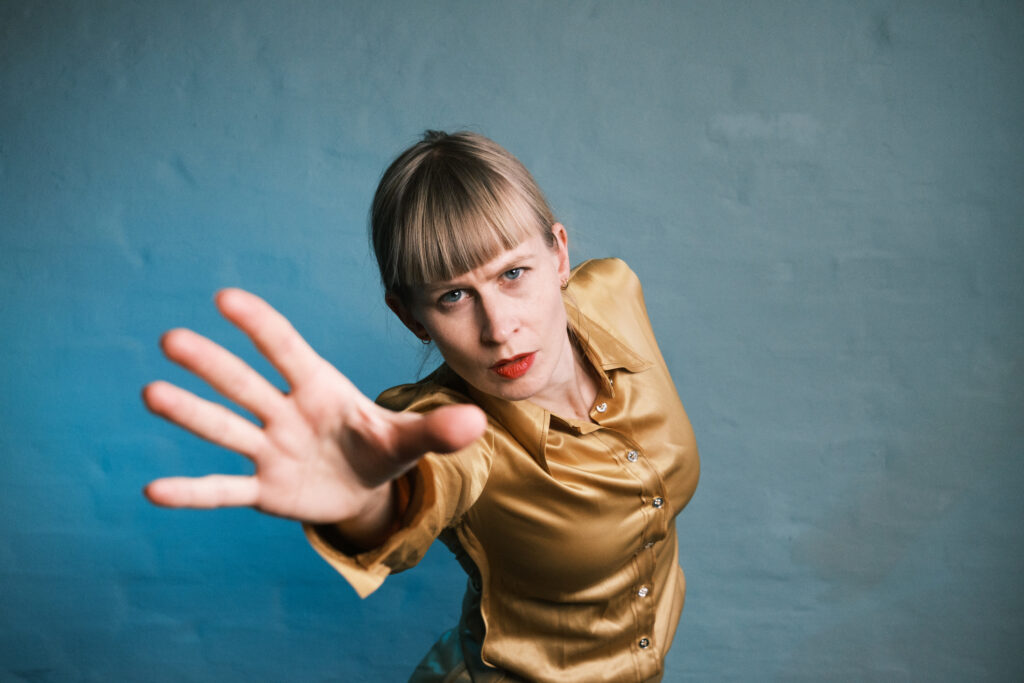 You can kind of hear that in the development of your style over time. Your style has gone from Viscera, which is sort of a droney, patient, churning sound, towards the past few releases: Practice of Love; the Lost Girls album; and Classic Objects, which are dance music really, I wondered whether that’s something that is conscious. Well, you call it pop music.
You can kind of hear that in the development of your style over time. Your style has gone from Viscera, which is sort of a droney, patient, churning sound, towards the past few releases: Practice of Love; the Lost Girls album; and Classic Objects, which are dance music really, I wondered whether that’s something that is conscious. Well, you call it pop music.
Yeah, anything with a melody is pop music to me.
Okay but your politics of art seem so opposed to genre constraint.
I have struggled a lot in the past with genres and definitions. On the one hand it is fun to categorise a bit, and it’s nice to clean a bit [laughs]. It’s always nice to put things in boxes. It feels fulfilling. But it is harder when it’s about yourself, so I struggled for a long time with feeling branded or stuck if I was asked about genres. But I think that at some point I decided that there is pop music, and it can be popular, unpopular, it can be all these different varieties within: amateur music or unlearned, not notation-based music. It is easier with a word with three letters: P.O.P.
I guess if a category is so broad it isn’t so restrictive.
Yeah, and I have been asked so many times by people who don’t really listen to music very much and it is just easier to say that I do pop music. I arrive in the US, and they ask me, “so, what do you do?”, just to check if I’m me and the visa is correct and that you shouldn’t be put in jail, and I just say I perform pop music. Sometimes it is just easier [laughs].
Do you think that you have gravitated towards synth or dance music because of its physicality and that something happens in your body when you listen to dance music?
I am obsessed with rhythm. To me, performed language and rhythm and timing is very connected and inspiring. I really love placing words in a rhythmic setting, and that’s how I work with demos. When I compose, I often use rhythm – sometimes stupid, generic drums and samples. I just choose what makes me write and then it can be changed later although not so much has changed completely by going into a studio with percussionist and working with layers. On this new album, quite a lot of the percussion world was already there on my demos because I just spent so much time on layering samples. It was hard to go in and change a lot of that in the studio because I felt it all belonged together with the way that I performed words and the way that I wrote them. It’s quite a rhythmical album when it comes to how words are placed as well. Dance music would also be a very broad term [laughs]. But I do like to think of a performance as choreography and writing as choreography. And I have also worked with a choreographer that uses words more than bodies on stage, so I am extremely interested in the correlation between choreography and writing.

I really want to ask about the song Cemetery of Splendour, which shares a title with the film by Thai director Apichitapong Weerasethakul. That film is so enigmatic, it’s a meditation on death and the presence of the spirit world in nature among other things, and it sounds like you sample the film’s ambient field sounds in your song.
It’s actually not a sample. It is really cool that people think that, but it is field recordings made by my friend Vivian Wang that have been placed and replaced. She is a big fan of his films and sound work as well, so it is not unrelated, but it’s not sampled.
Well, it’s great regardless. What does that film mean to you and what made you decide to dedicate a song to it?
I hope the dedication is allowed. I also wanted to delve into a spirit world of layering empty spaces. Like a lockdown venue that is empty. All the bars I have played at in the past with no audience or very few people in the audience. There is something that fills an empty space and Weerasethakul is very good at exploring the spirit world in our world and what it would be like to go there at the same time. The spirit world is represented in so many ways, also with timing and tempo and rhythm. Particularly in this film, with those lights, the almost installation type thing that is happening in the room with the sleeping soldiers. I was imagining that the field recordings almost represented the changes in colour in those special lights that they installed. I do really love all the films of his that I have seen, and I find his work with the spirit world allows me to go somewhere that I can’t through anything else. It allows access.
You are going on tour for a while now – what is your relationship to touring like now and what are your feelings about it in the new context?
There is nothing I would rather do than be in a room with people, especially at this time, and allowing that communal experience to happen. It is a really crazy time, and I don’t trust that it will happen until it happens, so it is much hazier. Since we have been discussing the spirit world already, it feels like I am going into a spirit world because the real world is not very real [laughs]. I just feel like I can’t foresee what it will be like. What is the world going to be like by the time my album comes out in nine days, who knows? A week ago, there was no war.
It is terrifying.
Yes.
Well, good luck. I hope your tour is wonderful for you and everyone who goes.
I hope that people can gather again and enjoy it as not just a time out but a tune in to something that we haven’t had for a long time.
Jenny Hval live:
07.04. Columbia Theater, Berlin


